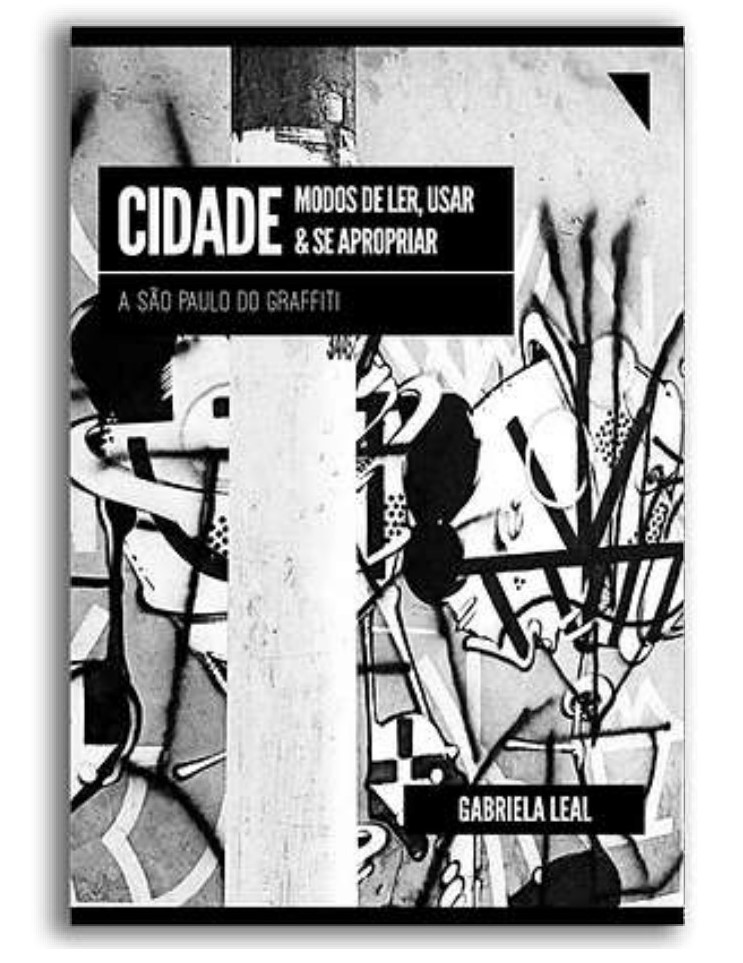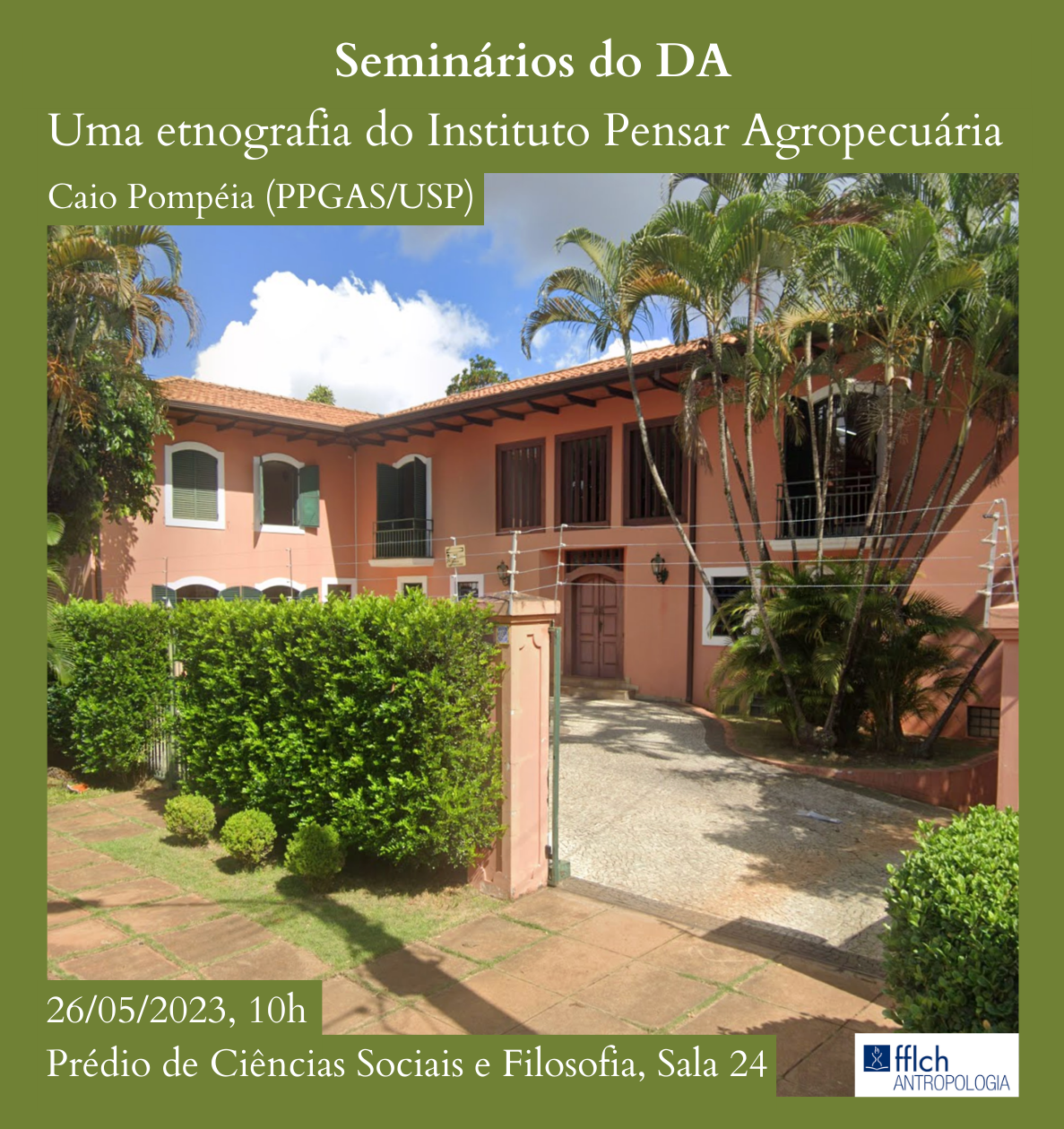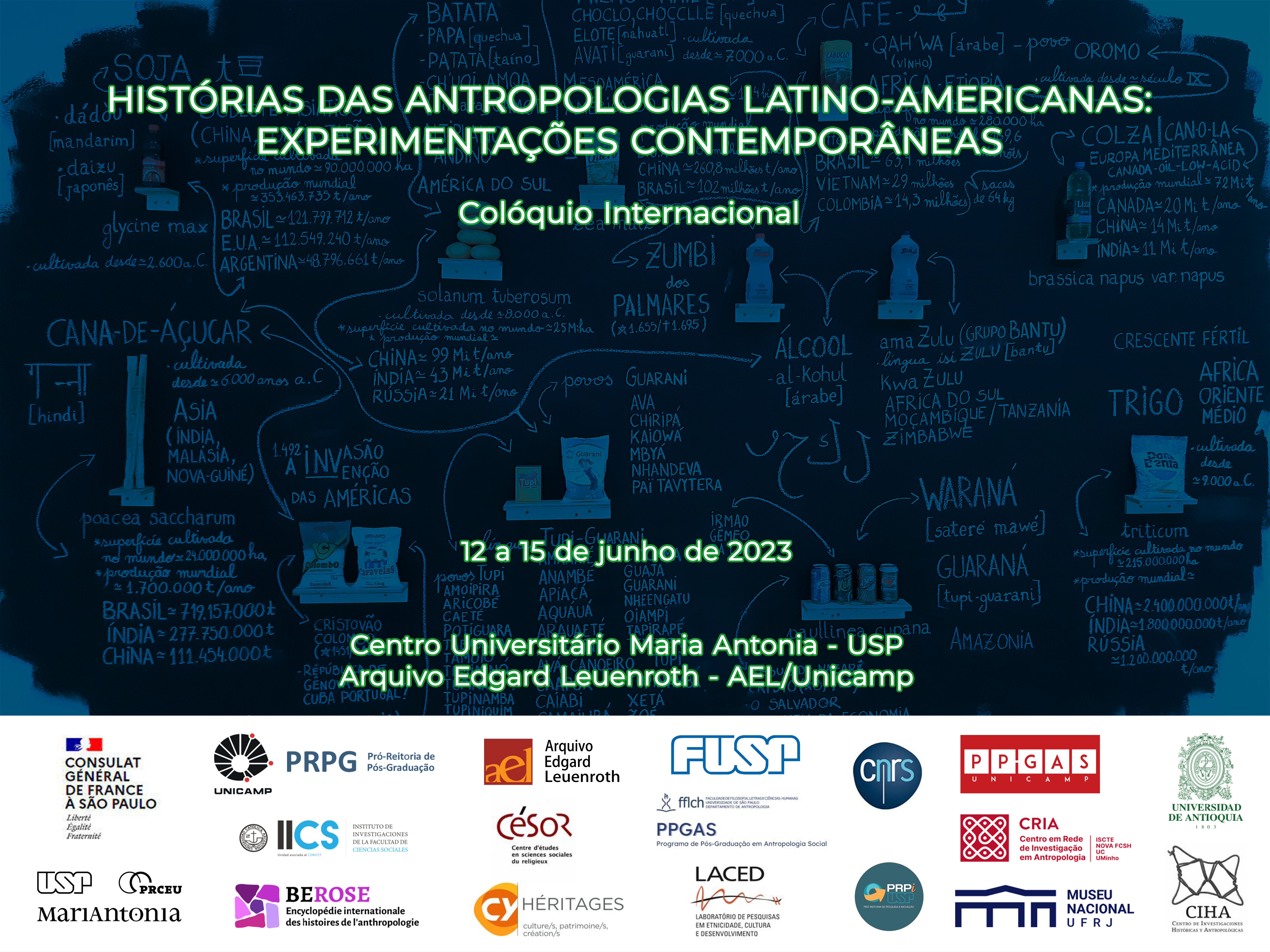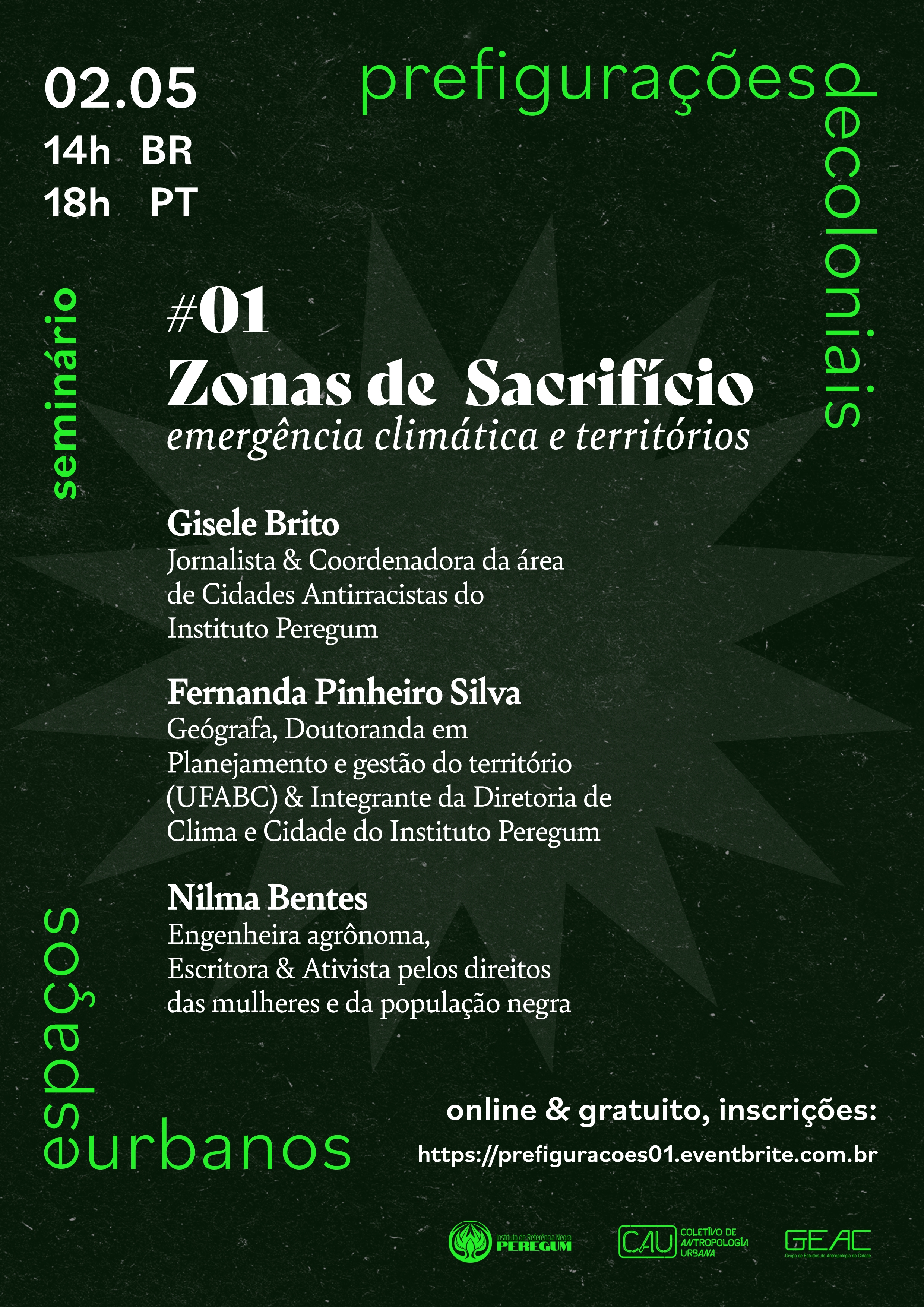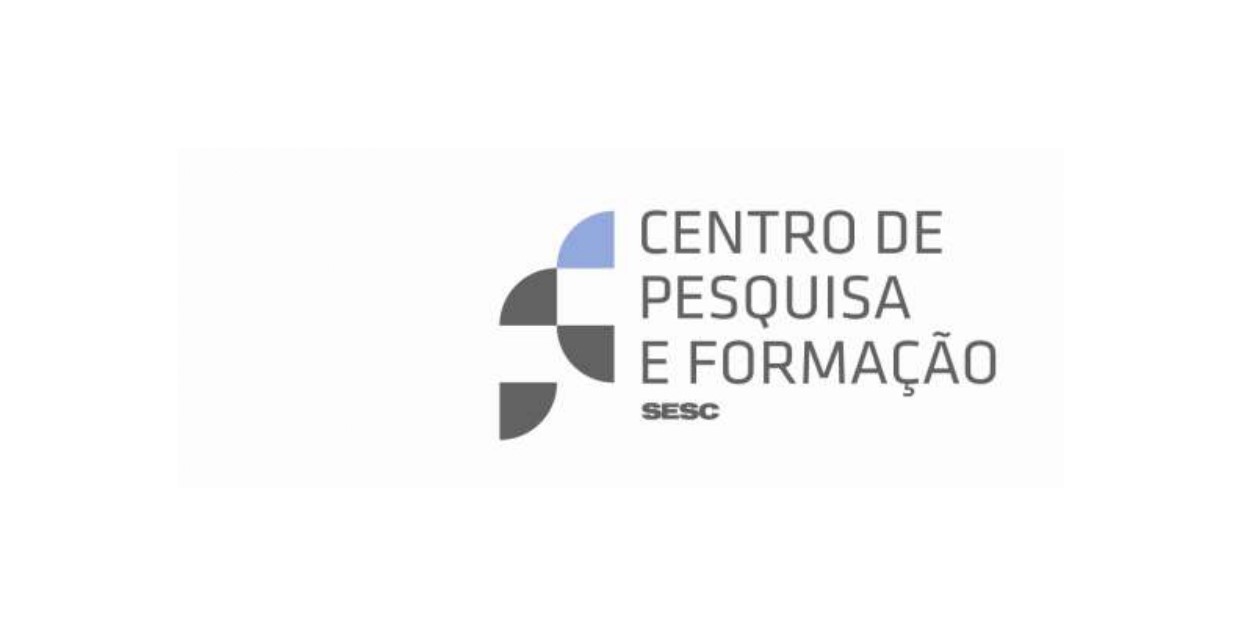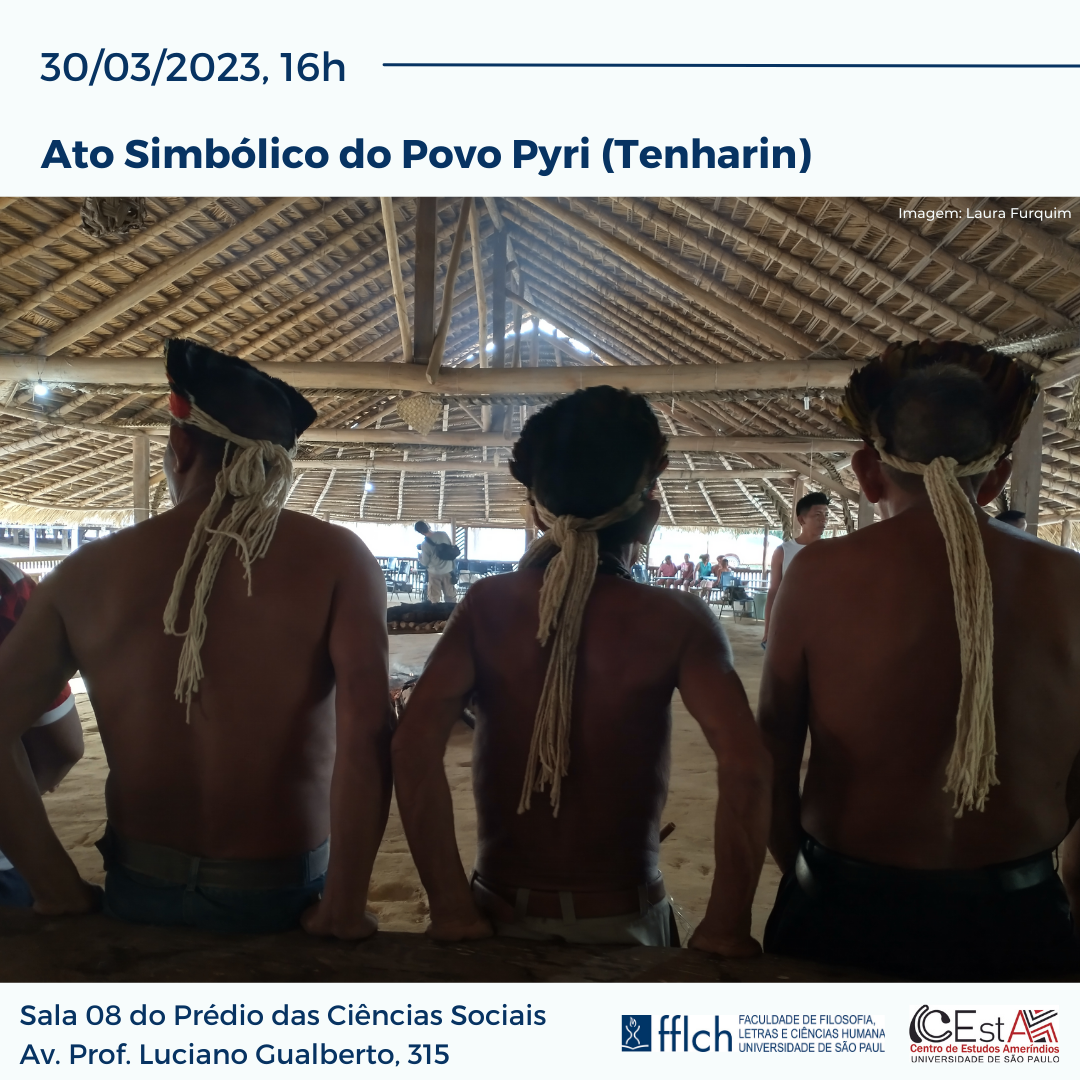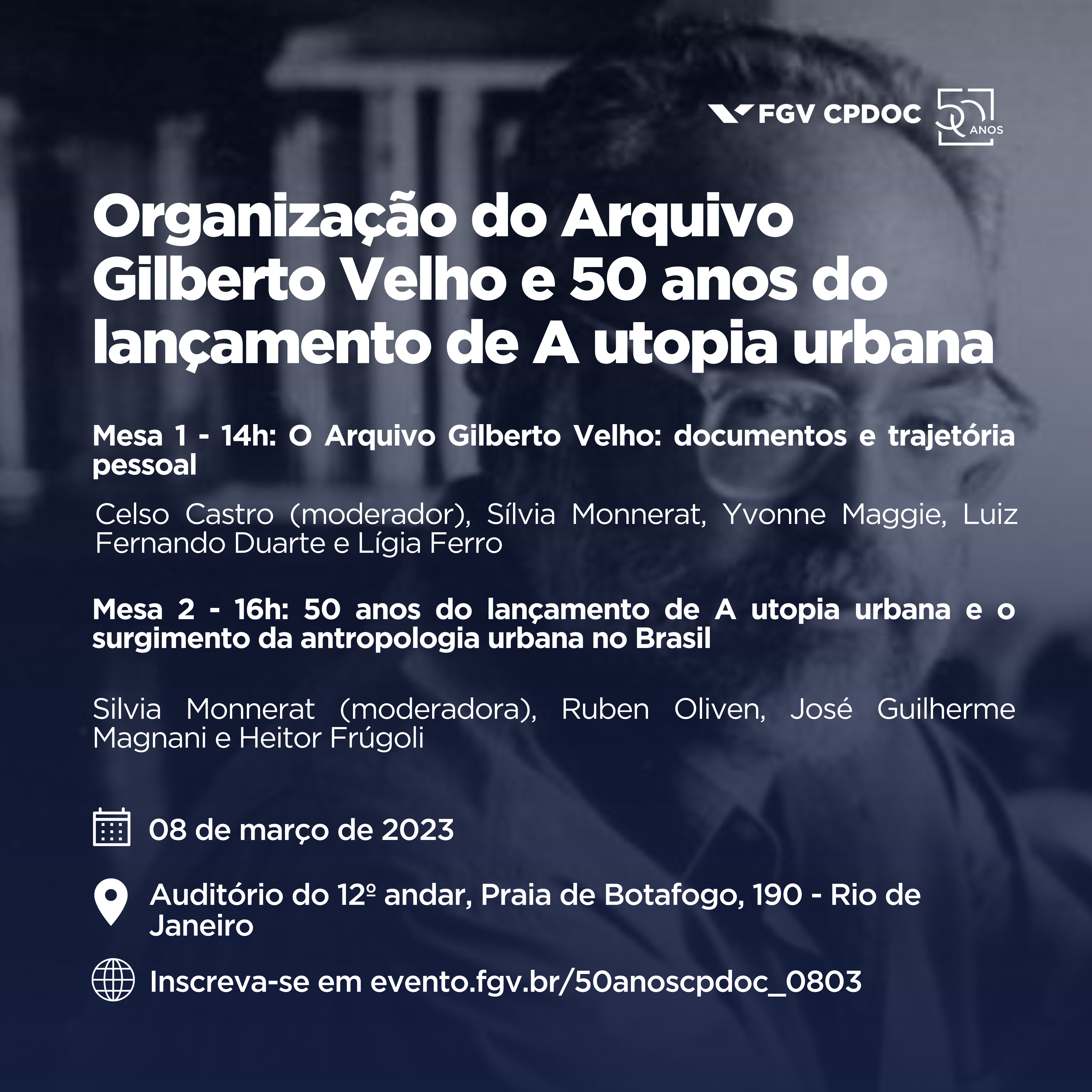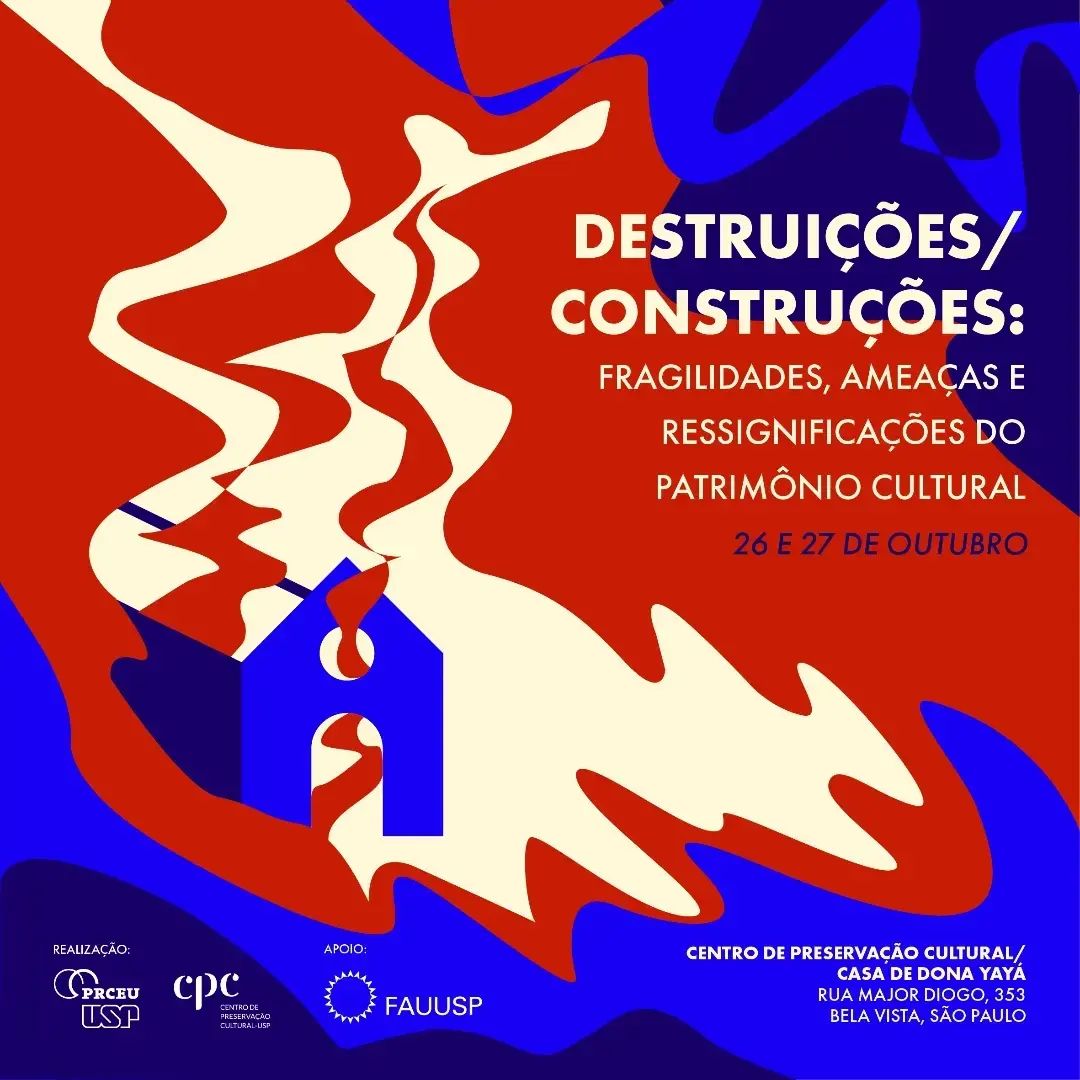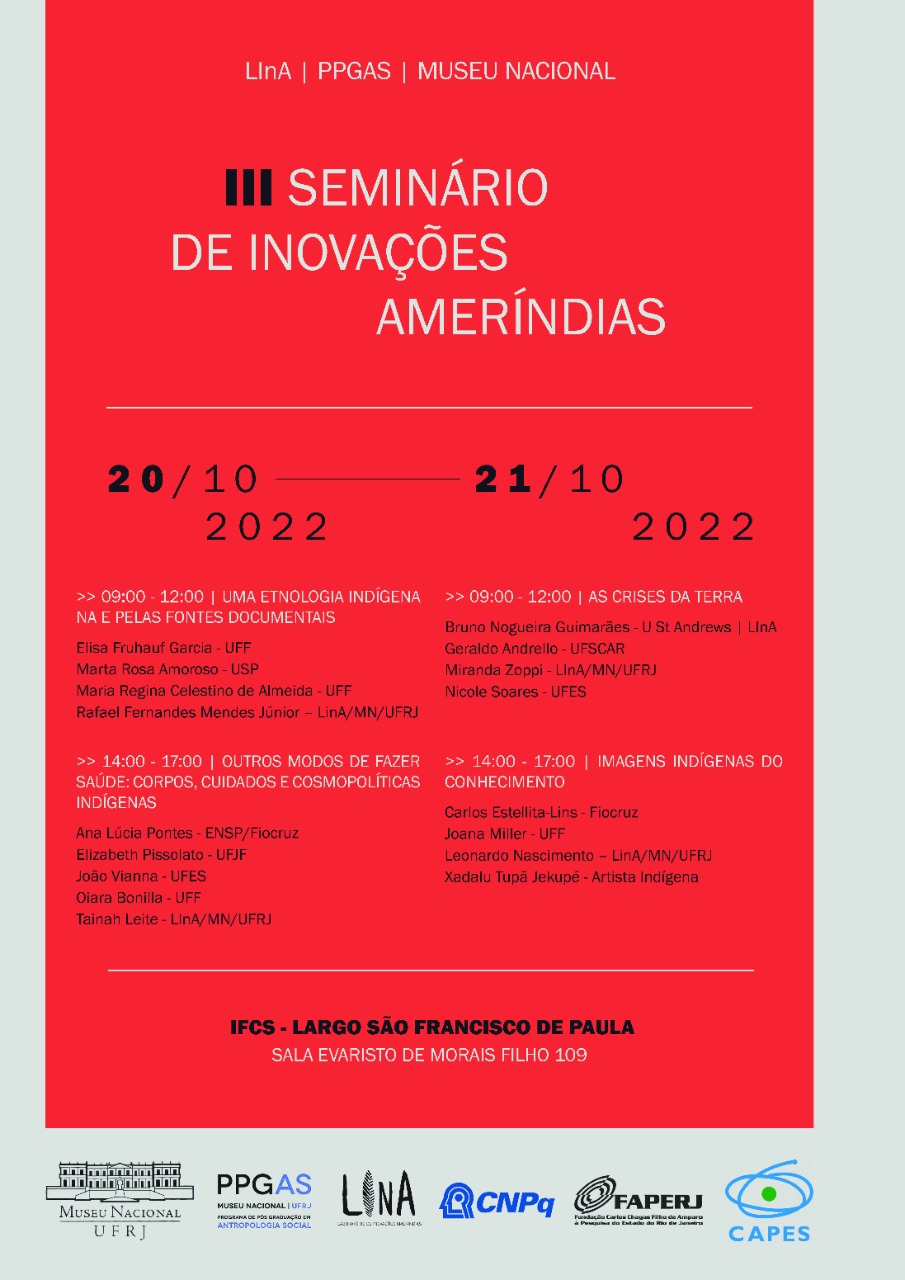Histórico PPGAS Indica
Deployment of the research carried out between 2016 and 2017, with some protagonists of the city's graffiti scene. Published by Editora Funilaria.
The launch will count with the presence, for a conversation, of Wellington Neri (from Imargem), Mauro Neri (reveracity) and Bianca Tavolari (Insper).
From May 15 to 19, 2023, the first USP Mental Health Week will take place, coinciding with the national calendar of celebration and struggle in defense of the Brazilian mental health policy and its principles and values principles, which closely link this policy to the issue of social justice, dignity and human rights.
To mark the date, the Pro-Rectory of Inclusion and Belonging encourages the creation of opportunities for meeting, conversation and care on the subject in the different spaces of the university and offers, in collaboration with various partners, a programming of activities that provide greater knowledge about the country's mental health policies and those that have been proposed for the university community, as well as the opportunity for reflection and debate on some important aspects of collective mental health in contemporary life. Highlighting in the programming prepared for this year the impacts of the pandemic on our mental health.
A program that includes a seminar and an artistic-cultural event, both with the theme of the relationship between the pandemic and our mental health, in addition to various conversation circles and other activities scheduled to promote a week of collective mental health care at the university.
Check the schedule:
Organizing and Scientific Committee
Organization
Fernanda Arêas Peixoto (DA - USP)
Christiano Tambascia (DA - Unicamp)
Gustavo Rossi (DA - Unicamp)
Stefania Capone (CNRS, EHESS, Césor, France)
Antonio Carlos de Souza Lima (PPGAS - National Museum, UFRJ)
Scientific Committee
Antonio Carlos de Souza Lima (PPGAS - National Museum, UFRJ)
Aura L. Reyes Gavilán (University of Antioquia)
Christine Laurière (CNRS, Heritages, France)
Christiano Tambascia (DA - Unicamp)
Fernanda Arêas Peixoto (DA - USP)
Diego Villar (IICS, CONICET-UCA, Argentina; CIHA, Bolivia)
Frederico Delgado Rosa (CRIA, New University of Lisbon, Portugal
Isabelle Combès (IFEA, UMIFRE 17 MAEDI/CNRS USR 3337, France;
CIHA, Bolivia), TEIAA, University of Barcelona, Spain)
João Leal (CRIA, New University of Lisbon, Portugal)
Lorena Cordoba (CONICET-UCA)
Nadège Meizé (Consulate of France)
Stefania Capone (CNRS, EHESS, Césor, France)
Organizing Committee
Amanda Gonçalves Serafim (DA - Unicamp)
Antonio Carlos de Souza Lima (PPGAS - National Museum, UFRJ)
Christiano Tambascia (DA - Unicamp)
Erik Petschelies (DA - USP)
Fernanda Arêas Peixoto (DA - USP)
Gustavo Rossi (DA - Unicamp)
Luís Felipe Sobral (DA - Unicamp)
Luísa Valentini (Center for Amerindian Studies - USP)
Stefania Capone (CNRS, EHESS - Césor, France)
Presentation
The International Colloquium Histories of Latin American Anthropologies: Contemporary Experimentations continues discussions proposed on the occasion of the Colloquium to launch the International Research Network, Transatlantic Histories of Latin American Anthropologies (IRN, CNRS), which took place in Paris in June 2022. The IRN is an international network of researchers made up of anthropologists from Argentina, Brazil, Bolivia, Colombia, France and Portugal, all collaborators and associates of Bérose – Encyclopédie internationale des histoires de l'anthropologie (www.berose.fr). The scientific ambition of the network is to contribute to a transatlantic history of ethnography and anthropology in several Latin American countries (19th-21st centuries), from a comparative perspective, in order to compose a diversified and heterogeneous picture of the anthropologies practiced in the south of the continent and in the Caribbean area. Without disregarding the contexts in which ideas were produced, the term “contemporary” in the title of the I Colloquium (Contemporary Histories of Latin American Anthropologies) indicates the attention given to the uses and meanings of the past for the anthropologies we make today and that we project for the future. future. The same spirit presides over this II Colloquium. It is about undertaking a historical retreat in order to recover subjects, concepts and practices to “rethink anthropology”, in the well-known terms of Edmund Leach. History of anthropology theoretically informed, reflective and self-reflexive, oriented by questions of the present, but rejecting a radical “presentism”, which is skeptical of the writing of history, as well as “antiquarianism”, which carries illusions about the study of the past itself even without relation to the present time. This second meeting aims to focus on “contemporary experimentation” that can be of several types: experimentation with (and against) history; theoretical-methodological experiments; institutional experiments (museographic and museological experiments); experiments with different types of knowledge (academic and non-academic); also with the natural sciences, with the arts and literature. In this sense, participants should prioritize specific cases and examples in order to extract, through analytical diving, broader lessons to be collated and confronted in debates and joint reflections. It is both about going back in time, in order to think with characters and past experiences, as well as shedding light on recent experiments, paying attention to the transits of knowledge and transatlantic flows; to materials and materialities; the inflections of gender, race and sexuality; to new museographic knowledge and shared curatorship. The guiding idea of the colloquium is to invest radically in the idea of experimentation, bringing new subjects and issues to light through risky and daring experiences, listening to them and thinking with them in order to forge new instruments and, who knows, to project other memories. and histories of anthropology. Review different anthropologies made in (and from) Latin America, thinking about their potential for an expanded reflection on anthropological knowledge andtheir reconfigurations, that is the central objective of the meeting.
Program
1:30 pm – Welcome greeting
Fernanda Arêas Peixoto (USP), Christiano Tambascia (Unicamp), Gustavo Rossi (Unicamp), Nadège Mezié (Consulate of France in SP), Maria Arminda do Nascimento Arruda (Vice-Rector/USP) and José Lira (MariAntonia)
Hital/ Berose Presentation
Christine Laurière (CNRS) and Frederico Delgado Rosa (New University of Lisbon)
2pm-3:30pm - Duet
Black voices: racism and anti-racism in Brazilian anthropology.
Messiah Basques Jr. (Afro-Latin American Institute/Harvard University)
Thinking from the point of view of ‘retakes’: indigenous mobilization and anthropology.
Daniela Fernandes Alarcon (Ministry of Indigenous Peoples/Laced/National Museum/UFRJ)
Moderation: Frederico Delgado Rosa (New University of Lisbon)
3:45 pm -6:45 pm – Anthropology and curatorial experiments
Are indigenous arts ancestral knowledge?
Sandra Benites (anthropologist and curator)
Updating knowledge, building horizons for the future: Tikuna indigenous protagonism at the Maguta Museum.
Rita de Cassia Mello Santos (UFPB)
Musealize it in a non-visitable, curatorial experience around the Serranía de Chiribiquete National Park.
Aura Lisette Reyes (University of Antioquia, Colombia)
Anthropology and the reconstruction process of the National Museum, UFRJ: experiences in the composition of collections and new exhibitions.
Caio Gonçalves Dias (National Museum/UFRJ/UNESCO)
Moderation: Luisa Valentini (CestA/USP)
06/12 – Monday
Location: Maria Antonia University Center
Program
2pm-4pm – New landscapes, other characters: experiments with anthropological practice Amerindian peoples: from objects to protagonists of knowledge.
Tiago Nhandewa (USP)
"I am my body": about looking, (not) listening, writing
Anahi Guedes de Mello (Anis/Institute of Bioethics)
Crossroads of knowledge: Afro-religious belonging and anthropological practice.
Mariana Ramos de Morais (National Museum/UFRJ)
Moderation: Stefania Capone (CNRS/EHESS/Césor)
4:30 pm-7:30 pm – Arts, anthropologies: experiments with words, sounds, images
Colombian cinematographic fiction in the light of Anthropology
Julie Amiot-Guillouet and Maria Jimena Febvre (UMR Héritages/CNRS, France).
A DJ lives in us: anthropological writing and remix cultures.
Dennis Novaes (National Museum/UFRJ).
MONSTRANS - the (in)human trans.
Lino Arruda (transmasculine illustrator and cartoonist)
Anthropology and literature: experimentations from possible dialogues.
Adriana Facina (National Museum/UFRJ)
Moderation: Fernanda Arêas Peixoto (DA/USP)
06/13 – Tuesday
Location: Maria Antonia University Center
Program
2pm-3:30pm – Flows and exchanges: experiment-actions (1)
Transformation of knowledge: some dialogues between science and indigenous knowledge
Joana Cabral de Oliveira (DA/Unicamp).
Anthropology and computational analysis, ethnography and parochial sources: new possibilities in the study of kinship in the Andes.
Pablo Sendon (ICSS-UCA/CONICET, Argentina).
Moderation: Antonio Carlos de Souza Lima (National Museum/UFRJ)
4pm-5:30pm – Flows and exchanges: experiment-actions (2)
Counter-hegemonic knowledge and experts at the university: the experience of the Kaapora-Unifesp Chair.
Valéria Macedo (UNIFESP).
Knowledge in sankofa: affirmative actions in postgraduate studies and recognition of new epistemes.
Jacqueline Moraes Teixeira (UNB/CEBRAP).
Moderation: Gustavo Rossi (DA/Unicamp)
6pm. HITAL team members meeting
14/06 – Thursday
Location: Unicamp (AEL and IFCH)
Program
14:00-16:00 – Workshop with members of the HITAL Network and visit to AEL's History of Anthropology in Brazil Collection.
Curatorship: Luís Felipe Sobral (DA/Unicamp), Amanda Gonçalves Serafim (DA/Unicamp) and Erik Petschelies (DA/USP).
Location: Edgard Leuenroth Archive (Unicamp)
4:30 pm-6:00 pm – Memory and preservation policies
Dialogue between João Pacheco de Oliveira (National Museum/UFRJ) and Mário Augusto Medeiros da Silva (DS/Unicamp)
Moderation: Christiano Tambascia (DA/Unicamp)
Location: Fausto Castilho Auditorium (IFCH/Unicamp)
Gisele Brito, Fernanda Pinheiro Silva and Nilma Bentes, based on their experiences, activism and research, will lead a conversation-debate involving the climate emergency and territories in urban contexts.
First meeting of the seminar 'Decolonial prefigurations in urban space' (partnership between the Coletivo de Antropologia Urbana (Portugal), the Instituto de Referência Negra Peregum (Brazil) and the Grupo de Estudos de Antropologia da Cidade (Brazil)).
Registration: https://prefiguracoes01.eventbrite.com.br
Symbolic Act of the Pyri People (Tenharin)
In the Marmelos Indigenous Land, in the south of Amazonas, the Tiverin inhabit a territory historically occupied by their Kagwahiva elders and also by their isolated relatives. During the 1970s, this territory was crossed by the Trans-Amazonian Highway and the resulting growth of illegal resource exploration activities, which involved compulsory labor on the part of its inhabitants. The Tenterin resisted until the demarcation of their lands in 1988, and they still resist the impacts of having one of the largest highways in the country in the midst of their villages. Jiré is a symbol of the strength of the Tenterin culture. Important leadership (in memorian), he represents the generation of elders who saw and felt the moment of contact, and brings together the ancestral wisdom and the recent transformations that this new political configuration assumes. In his honor and that of all the elders and elders, the Tenterin are building a memorial in the Marmelos village, which seeks not only to look to the past, but also to be a point of reference for the future, through educational actions for young people, generation of income and regional appreciation of Kagwahiva culture. A delegation is in São Paulo for training in Museology at the USP Museum of Archeology and Ethnology, and will present the trajectory of the Jiré Memorial and the results of the exchanges that took place throughout the week, together with anthropologist Karen Shiratori (Eco-Amazônia, U . Coimbra), museologist Viviane Wermelinger (MAE-USP) and archaeologist Laura Furquim (MAE-USP), project partners.
See details at: https://cpdoc.fgv.br/eventos/
10/20
09:00 - 12:00 | An indigenous ethnology through documentary sources
Elisa Fruhauf Garcia - UFF
Marta Rosa Amoroso - USP
Maria Regina Celestino de Almeida
Rafael Fernandes Mendes Júnior - LinA/MN/UFRJ
14:00 - 17:00 | Other ways of doing health: Bodies, care and indigenous cosmopolitics
Ana Lúcia Pontes - ENSP/FIOCRUZ
Elizabeth Pissolato - UFJF
João Vianna - UFES
Olara Bonilla - UFF
Tainah Leite - LinA/MN/UFRJ
10/21
09:00 - 12:00 | Earth's Crisis Bruno Nogueira Guimarães - U St. Andrews | LinA
Geraldo Andrello - UFSCAR
Miranda Zoppi - LinA/MN/UFRJ
Nicole Soares - UFES
14:00 - 17:00 | Indigenous images of knowledge
Carlos Estellina Lins - FIOCRUZ
Joana Miller - UFF
Leonardo Nascimento - LinA/MN/UFRJ
Xadalu Tupã Jekupé - Indigenous Artist


